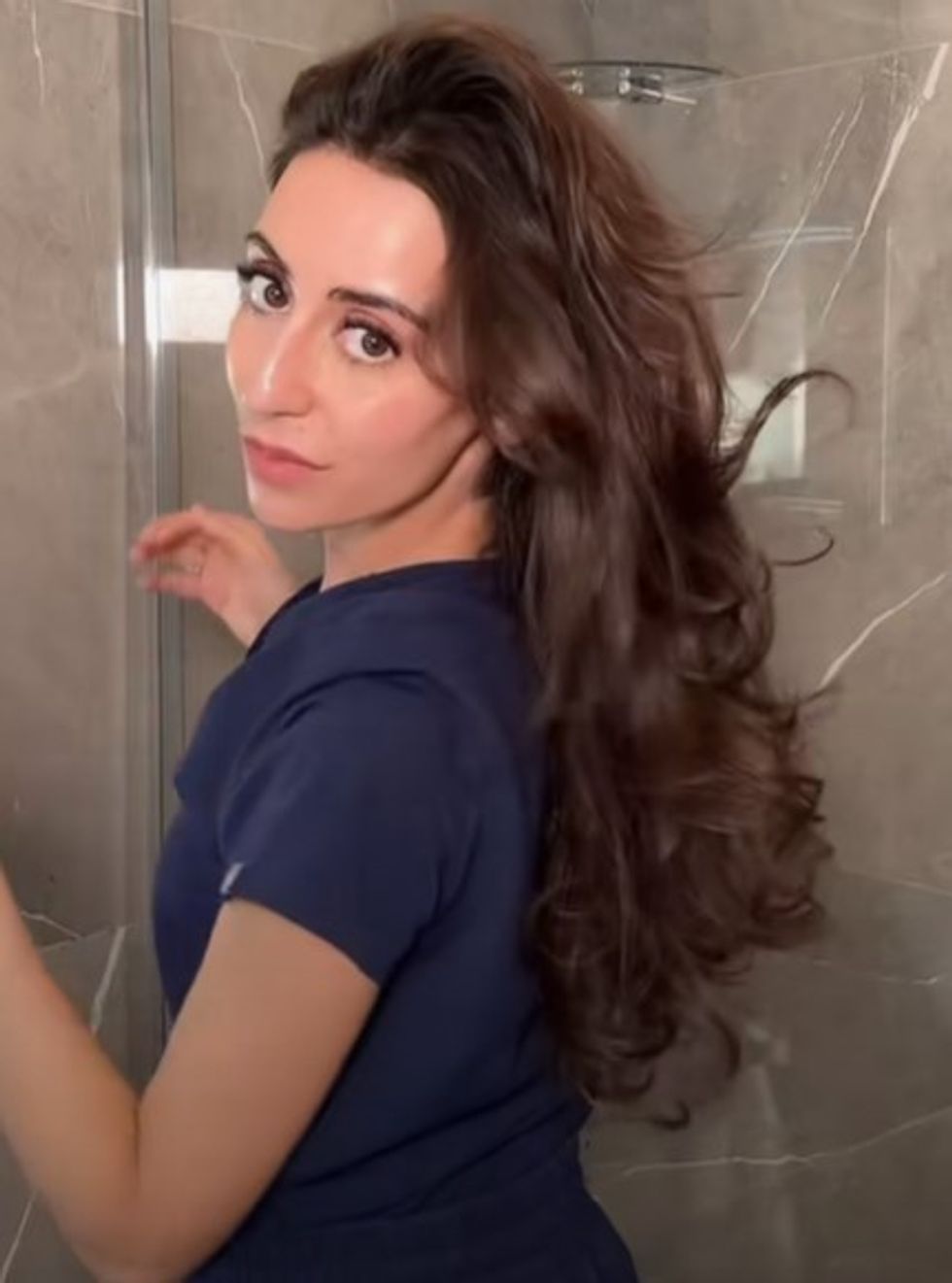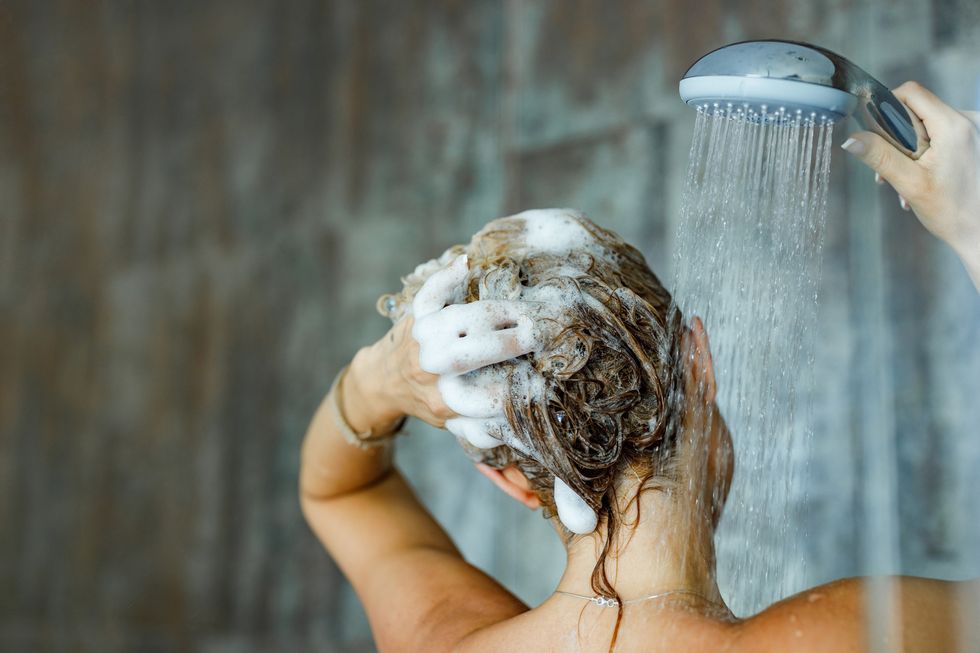Hair expert Richard Ward explains how to combat hair loss
GB NEWS
A "backed-by-science" hair-washing method could be the answer to regrowth
Don't Miss
Most Read
Trending on GB News
Hair loss is something that affects many women, with common causes including age, genetics, childbirth, illness, menopause, stress, damaging hair care practices, nutritional deficiencies, some medications, and cancer treatment.
For many, it can be a source of anxiety and distress; however, several forms of hair loss can be improved with the right techniques.
If you are concerned about hair loss or hair thinning, it's worth booking an appointment with a dermatologist (a medical doctor who specialises in conditions affecting the hair, skin and nails).
One dermatologist took to TikTok to share the expert-approved methods she swears by for hair loss - they even helped her combat her own.

'This is everything I've been doing to grow my hair back'
TikTok/@aamnaadel
Sharing her "hair growth routine" with her followers, Dr Aamna Adel (@aamnaadel on TikTok) said: "This is everything I've been doing to grow my hair back. Everything is backed by science."
One of the ways Dr Adel reversed her hair loss was by incorporating an anti-dandruff shampoo into her routine twice a week.
Dandruff, as explained by the hair and scalp experts at Head & Shoulders, is caused by Malassezia globosa, a fungus that lives on all of our scalps.
While Malassezia globosa is "harmless to most people", some are sensitive to one of its by-products: oleic acid.
"For those who are sensitive, Malassezia globosa will lead to symptoms that include itchiness, white flakes in the hair, and a red scalp," the experts warned. "This is dandruff."
While dandruff does not directly cause hair loss, it can pave the way for it by "weakening the hair".
Experts explained: "Hair growing from a dandruff-affected scalp has more surface damage and a weaker protein structure. Scratching can also contribute to hair damage. Weak hair is more prone to break."
Head & Shoulders is widely recognised as a leading anti-dandruff shampoo brand, but there are so many to choose from.
The NHS provided useful information on how to tackle dandruff. For a healthy scalp and strong hair, those concerned should use an anti-dandruff shampoo that contains either zinc pyrithione, selenium sulphide (or selenium sulfide), ketoconazole, or coal tar with salicylic acid.
Hair care enthusiasts were advised: "Use the shampoo for a month to see if your dandruff gets better. You might need to try more than one type to find a shampoo that works for you. A pharmacist can tell you how to use the shampoo."
LATEST DEVELOPMENTS

Use an anti-dandruff shampoo for a healthy scalp and strong hair
GETTY IMAGES
As well as revamping her hair-washing routine, Dr Adel implemented other dermatologist-approved methods to see results.
Dr Adel's hair growth routine
- Daily application of hair growth and scalp barrier serum
- 20 minutes of daily scalp massage
- Pumpkin seed oil and Nutrafol supplement
- LED hair mask five times per week for 10 minutes
- Wash hair with anti-dandruff shampoo twice a week
In another video, Dr Adel shared the hair-washing adjustment she made for "thick and soft" hair.








